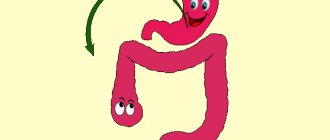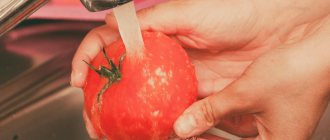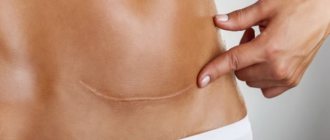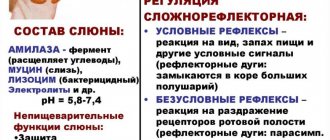Food must supply the body with energy. But sometimes the exact opposite happens, and after eating we become lethargic and want to lie down and rest.
Feeling tired after eating is quite common, and there are many reasons why food may act as a sleep aid rather than as fuel.
Why do you want to sleep after eating and how to deal with it? We analyze all the reasons that cause the desire to sleep.
Changes in blood glucose levels cause drowsiness
Insulin is a hormone produced by the pancreas that regulates blood glucose levels. It is insulin that ensures that glucose enters tissue cells, where it is used for energy or stored. When we eat, especially something sweet, the sugars in the food cause our glucose levels to spike.
In response to this, insulin is released, stimulating the transfer of glucose into tissues, its concentration in the blood decreases. A large drop in glucose levels that occurs some time after eating can cause you to feel tired. This can be either a normal reaction or a symptom of insulin resistance or type 2 diabetes.
To avoid post-meal energy spikes and prevent the development of insulin resistance, it is recommended to include a mixture of complex carbohydrates, healthy fats and lean protein at each meal, and choose foods low in saturated fat and high in fiber.
Carbohydrates, sugar, orexin
Often, the main source of energy for a person is carbohydrates - rice, potatoes, the notorious buns... With the help of digestive magic, they are converted into glucose, which nourishes our cells. Excesses are reserved in the muscles and liver in the form of glycogen, and everything that does not fit turns into fat, which is also involved in energy processes. Where is there room for fatigue in this glorious energy idyll? Scientists have not yet fully figured this out, but they indirectly associate this phenomenon with the effect of sugar on neurons that produce orexin.
Digestive enzymes in high concentrations can cause sleepiness after eating
Some foods high in protein and fat, such as pizza, pasta carbonara, or fatty fried meats, may also cause drowsiness. This is due to the hormone cholecystokinin (CCK), which is especially actively produced in the cells of the mucous membrane of the duodenum in response to the breakdown products of proteins and fats.
Cholecystokinin helps the body break down proteins and fats, and some studies show that sleepiness increases as CCK concentrations increase.
It is hypothesized that when we eat foods high in saturated fatty acids (such as red meat or sweets), they stimulate inflammation and the body may release cytokines (molecules that have pro-inflammatory or anti-inflammatory effects) such as interleukin-1 (IL-1). Research suggests that higher levels of IL-1 may be one of the causes of post-meal sleepiness.
"Sleepy" products
Some foods contain large amounts of tryptophan, an amino acid that stimulates the production of the sleep hormone melatonin. If your lunch or snack consists of these foods, you may want to reduce the amount, move them to an evening meal, or eliminate them from your diet altogether.
In addition to tryptophan, almonds, walnuts, pumpkin seeds and bananas contain magnesium and potassium, which relax muscles and provide us with a feeling of pleasant relaxation after eating. Some herbal teas, such as chamomile or mint, are best drunk in the evenings or before bed: the fact is that they have a calming effect on us and cause drowsiness.
To stay alert during your lunch break, it would be better to drink plain water, strong coffee, green or black tea without sugar.
Caffeine may be linked to sleepiness
A modern person can no longer imagine his morning without a cup of coffee. But it is important to know that the effect of the invigorating drink is short-lived. The stimulant effects are usually limited by caffeine's half-life (the time it takes the body to eliminate and metabolize the substance before it loses half its pharmacological potential) and ranges from three to five hours after you drink a cup of coffee.
Therefore, if the first glass was at 7-8 in the morning, then closer to lunch the invigorating effect will disappear due to a decrease in the concentration of caffeine in the blood.
Binge eating
The feeling of heaviness that occurs after overeating makes us have an irresistible desire to lie down to rest and digest the food. If we eat rarely and in large portions, the body gets tired and requires rest in order to deal with a thousand new calories.
Don't let yourself go hungry, try to eat often and in small portions. Spacing out your meals will help you stay in control and prevent overeating, which can cause you to gain weight in the future and cause you to nap during the day.
Food allergies cause fatigue
Food intolerances and food allergies are often associated with unpleasant gastrointestinal symptoms such as stomach cramps or diarrhea. But sometimes food intolerances that we are not yet aware of can cause us to feel sleepy.
For example, lactose intolerance, found in dairy products, sometimes develops with age and can directly or indirectly, through problems with digestion and absorption of nutrients and vitamins, cause fatigue.
Dehydration
Water balance greatly affects our general condition. We have already written more than once about why it is necessary to drink a lot of water. Without it, we simply will not be able to fully charge ourselves with the energy that enters the body along with the food we consume.
- 1476 1402
More details - 270
More details
- 198
More details
- 204
More details
When dehydration sets in, we feel tired, lethargic and even dizzy: this is associated with changes in blood pressure and a decrease in heart rate. It is in this state that we may be especially attracted to daytime sleep.
Don't forget to drink a glass of water in the morning on an empty stomach and before every meal, even snacks. This way you will be able to maintain your water balance normally and will not allow metabolic processes in the body to “fall asleep”.
Alcohol intake as a cause of drowsiness
Alcohol combines two seemingly completely opposite effects - stimulating and sedative. Research shows that stronger stimulant effects and a state of euphoria are observed with a gradual increase in blood alcohol concentration, and sedative effects are observed after a significant dose of drinking and the end of the party.
But even with moderate consumption, a glass of wine or beer can make you feel drowsy after eating. This is because alcohol is a poison to the body that takes a lot of energy to neutralize, which can make us feel tired.
However, you should not take a glass of wine in the evening as a guarantee of sound sleep. Within a few hours of drinking alcohol, the body experiences an increase in adrenaline levels, which increases the heart rate and typically stimulates the activity of the sympathetic nervous system, leading to awakenings at night. Alcohol also relaxes the throat muscles, and this relaxation can worsen breathing problems during sleep and contribute to apnea (intermittent stops in breathing).
Adenosine
To begin with, apart from food, let's look at a molecule of a substance that is associated with the regulation of sleep - adenosine. The more it is in your body, the more you want to sleep. It works like this: you wake up, go to work and chat with your colleagues at the water cooler. And while your working day does not promise serious stress, your cells and organs work at full capacity, supporting the vital functions of the body. As they work, adenosine is produced, which, when it hits adenosine receptors, tells your mind to “rest” - and you eventually go to sleep. While you sleep, the body puts itself in order, the concentration of adenosine decreases, and you wake up refreshed. If you don’t get enough sleep, then the body does not have time to fully recover, and some of the adenosine remains. After repeating this several times, you will acquire chronic sleep deprivation and learn a new mantra: “Today I will definitely go to bed before midnight.”
Circadian rhythm determines fluctuations in the level of activity of the nervous system
Each of us has an internal clock called a circadian rhythm. They regulate the body's natural sleep-wake cycles.
Around 2-4 pm, usually after lunch, one of the natural peaks of sleepiness occurs, during which concentration decreases.
- How does lack of sleep affect performance in sports? What happens with chronic lack of sleep?
- Is it possible to exercise after a sleepless night?
- Is it true that sex is healthier than exercise? Can sex replace jogging?
- How to start eating right? Is it possible not to have breakfast? Is food from McDonald's normal? We answer your questions!
- Is sleeping on the floor beneficial or not?
- How to fall asleep quickly and have a good night's sleep? Effective tips for improving sleep
- Why is it better to sleep under a heavy blanket? How it works? How to choose it correctly?
- All about healthy sleep. Why is it important to follow a routine? Why did evolution make humans and animals sleep? How does the body work during sleep?
- More about training, nutrition, sports medicine and sports as an activity - in the “Health” section
- Subscribe to the Sports.ru telegram channel about health
Photo: unsplash.com/Joshua Rawson-Harris, Samantha Gades; pexels.com/Artem Podrez, Laura Tancredi
The stomach “pulls the blanket” over itself
A popular point of view is that afternoon drowsiness is related to the work of the nervous system, namely its sympathetic and parasympathetic parts. The sympathetic one puts a person on “combat readiness” - it activates muscles and improves reaction. Parasympathetic, on the contrary, provides a state of rest: it helps to relax muscles and slows down the heartbeat.
After eating, a person's parasympathetic system is active because at this moment the gastrointestinal tract needs a rush of blood to digest the food. The body's focus shifts from the muscles to the digestive system.
The human body cannot remain tense and digest food at the same time, so it has to choose one thing. And since the parasympathetic system gives a feeling of peace, drowsiness occurs. This is especially felt after a heavy lunch.
A guide to the Mediterranean diet. Why is it called the best diet in the world? Dozens of studies on the Mediterranean diet show that it has a positive effect on all body systems. We talk about the basic principles and benefits of the diet.
Sleeping after lunch is a natural phenomenon
Researchers have different theories, but they generally agree on one thing: this is a natural reaction and not a cause for concern. Usually I want to lie down around 1-3 pm.
Our body requires energy to survive and exist. It comes from food, which is broken down and turned into fuel. Macronutrients then provide calories to the body. The digestive system triggers all kinds of reactions and spends a lot of energy on it.
In 2022, a study was conducted in which participants were night shift workers. One group did not eat anything, the other had a snack. As a result, the second group performed worse than the first group and were sleepy at 4 am.
Large portions - strong gravity
Everything here is elementary: a large amount of food causes a feeling of heaviness, and this causes the desire to lie down. Add the first point - and your eyelids stick together despite the burning deadline for the report.
So the recommendation to eat more often and in small portions is relevant not only for those losing weight and the sick. If you want to feel light all day, eat every 2-3 hours 5-6 times a day (one of the main principles of Table No. 5). Make sure that there are always a lot of vegetables on your plate: fiber itself is well absorbed and helps other substances to be digested.
It is also important that the body receives enough water. Dehydration can also cause lethargy and drowsiness. From a lack of fluid, your blood pressure drops, your pulse becomes weak and you are drawn to a horizontal position.
Diagnostics
Lethargy is a symptom of many diseases, so the primary examination is carried out by a general practitioner. The diagnostic plan involves a combination of laboratory and instrumental studies designed to find or exclude a possible cause of lethargy. The most informative ones are:
- Blood test
. In the general analysis, nonspecific signs of inflammation are revealed; sharp changes in the number of platelets indicate disturbances in the hemostatic system. Biochemical analysis is carried out to determine the level of protein and individual protein fractions, acute phase indicators. The immunogram is designed to exclude allergic reactions. - Hormonal profile
. In women, the levels of progesterone and estrogen must be examined, and, if necessary, the amount of FSH and LH, prolactin. To exclude thyroid diseases, the levels of free thyroxine, triiodothyronine, and pituitary thyroid-stimulating hormone are assessed. Additionally, the insulin concentration is determined. - Bacteriological analysis
. Often lethargy is a sign of infectious diseases, so culture of blood and sputum on selective nutrient media is required. For express diagnostics, microscopy of the smear is performed after staining with aniline dyes. Serological tests are used to confirm the diagnosis, especially for viral infections. - X-ray imaging
. To assess the condition of the kidneys, plain radiography and excretory urography are performed. To exclude damage to brain tissue, it is prescribed, which makes it possible to identify focal formations or diffuse inflammatory changes. Magnetic resonance imaging is used to detail the affected area. - Additional methods
. In order to exclude bronchial asthma, spirography and a bronchodilation test with salbutamol are necessary. If neurological causes of illness are suspected, the reactions of the autonomic nervous system are examined, deep and superficial reflexes are studied. Women are advised to undergo a comprehensive gynecological examination.










